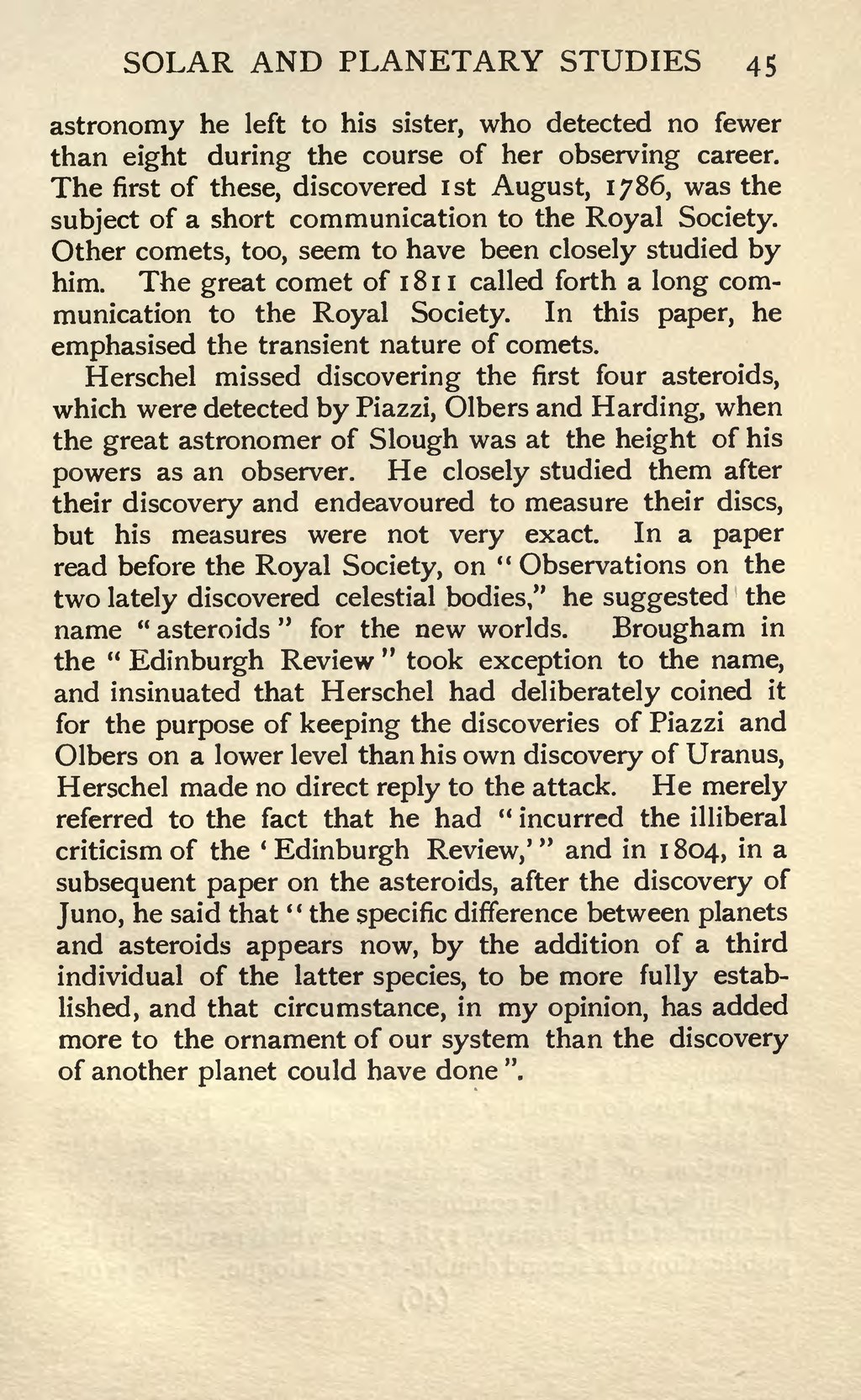astronomy he left to his sister, who detected no fewer than eight during the course of her observing career. The first of these, discovered 1st August, 1786, was the subject of a short communication to the Royal Society. Other comets, too, seem to have been closely studied by him. The great comet of 1811 called forth a long communication to the Royal Society. In this paper, he emphasised the transient nature of comets.
Herschel missed discovering the first four asteroids, which were detected by Piazzi, Olbers and Harding, when the great astronomer of Slough was at the height of his powers as an observer. He closely studied them after their discovery and endeavoured to measure their discs, but his measures were not very exact. In a paper read before the Royal Society, on "Observations on the two lately discovered celestial bodies," he suggested the name "asteroids" for the new worlds. Brougham in the "Edinburgh Review" took exception to the name, and insinuated that Herschel had deliberately coined it for the purpose of keeping the discoveries of Piazzi and Olbers on a lower level than his own discovery of Uranus, Herschel made no direct reply to the attack. He merely referred to the fact that he had "incurred the illiberal criticism of the 'Edinburgh Review,'" and in 1804, in a subsequent paper on the asteroids, after the discovery of Juno, he said that "the specific difference between planets and asteroids appears now, by the addition of a third individual of the latter species, to be more fully established, and that circumstance, in my opinion, has added more to the ornament of our system than the discovery of another planet could have done".
